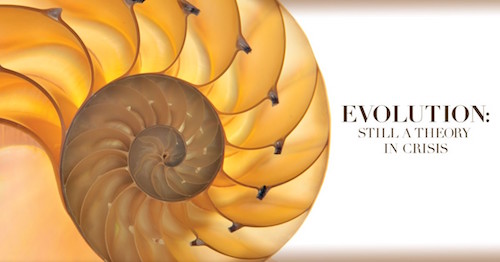 Education
Education
 Evolution
Evolution
 Free Speech
Free Speech
 Intelligent Design
Intelligent Design
What’s Wrong with the Terms "Anti-Science" and "Anti-Evolution"?


A colleague forwards to me a confused article dealing with “antievolution state laws,” aka academic freedom legislation. The article for a Web magazine published by Washington University in St. Louis, Religion & Politics,features the usual misinformation, including identifying us as “Discovery Institute, a think tank which supports teaching intelligent design.” For the umpteenth time, we do not support teaching ID in public schools, never have, and in fact warn against it.
Beyond this, I’m struck by author Adam R. Shapiro’s repetition of the catchword “antievolution.” He uses it and the noun form “antievolutionism” 17 times and is even the author of a book from the University of Chicago Press, Trying Biology: The Scopes Trial, Textbooks, and the Antievolution Movement in American Schools.
It’s a common formulation. Glancing at recent articles on the Internet, I see Slate speaks of “anti-evolution bills,” as does Religion News Service, Ars Technica, the Washington Post, and more.
Then there is the cognate “anti-science,” or as the National Center for Science Education consistently styles it “antiscience.” (Which without the hyphen seems to invite mispronunciation — “an-TIS-ee-ence”?) “Antiscience bill in Mississippi,” “Antiscience bill in South Dakota,” “A second antiscience bill in Oklahoma,” etc.
What’s wrong with these terms? Of course “anti-evolution” is used to describe intelligent design outside of the context of academic freedom bills. Writing at The Daily Beast, Karl Giberson refers to “Discovery Institute, the heart of the anti-evolutionary intelligent design movement.” (That was in an article where he was pushing the Photoshop-based myth of tailed babies. Remember that one?)
“Anti-evolution” and “anti-science” are terminology intended to win a debate without actually having one. Their use lies in tarring an idea while concealing from your audience or from yourself what that idea really says and how its advocates argue.
“Anti-evolution” bills in fact protect teachers who teach evolution, including the evidence for it, in an objective manner, while not hiding from students the evidence that runs counter to Darwinian explanations of how evolution works. See Casey Luskin on, “How Should We Teach Evolution?” The question is not whether — of course we must teach evolution! — but how.
Public school education aside, intelligent design is not “anti-evolution.” It is a theory of evolution, seeking to explain why biological diversity flowers and grows in the manner it does. It’s just not Darwin’s theory of evolution. Michael Denton’s new book from Discovery Institute Press, which we are currently serializing here at Evolution News, wonderfully articulates the structuralist alternative to Darwinian adaptationalism. Dr. Denton defends a theory of evolution, complete with common ancestry, that is also a theory of intelligent design. The question for ID scientists like Denton and Michael Behe (writing in books and technical articles) is not whether Darwinian natural selection explains anything. Clearly it does, but within strict limits. The question is where the limits lie, and what drives evolution beyond those limits.

ID scientists aren’t alone, either, in questioning the extent of what the Darwinian mechanism can do. See the group of distinguished scientists and scholars gathered under the banner of The Third Way, led by University of Chicago biologist James Shapiro and Oxford University biologist Denis Noble. “Anti-science“?
In this debate, condemning ideas as “anti-whatever” is nakedly propagandistic in its intent. You can see that by comparing the evolution controversy to controversies in other fields. In American politics, Democrats and Republicans debate which policies and leaders are best for the country. But it’s a disreputable tactic to label opponents “anti-American,” and completely absurd, and unheard of, to call them “anti-politics.” Some people are “anti-government,” but they’d tell you that themselves.
There are vigorous debates in the study of history, medicine, physics, ethics, religion — but you don’t call your opponents in those fields “anti-history,” “anti-medicine,” “anti-physics,” or “anti-ethics.” In the context of religion, members of differing faiths in the Judeo-Christian family look at the same evidence (Scripture, history, philosophy, personal experience) but disagree on its meaning. A Catholic and a Protestant differ on some fundamental matters, but that doesn’t make them, respectively, “anti-Protestant” or “anti-Catholic,” much less “anti-religion.” Sane people reserve a term like “anti-Semitic” or “anti-Jewish” only for those who seek to suppress, harm, or malign Jews or Judaism, not for people who disagree with Jewish theology. How ridiculous to imagine otherwise.
In the context of evolution, if anyone is guilty of seeking to silence, harm, or falsely malign anyone, it is Darwin’s most aggressive orthodox enforcers, who routinely intimidate vulnerable scholars. Is suppressing scientific debate and punishing scientific dissenters “anti-science”? I leave that call to you.
Image credit: © TR / Dollar Photo Club.
